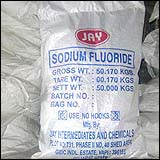 The recently passed Iran Sanctions, Accountability, and Human Rights Act of 2012 eliminated a loophole that permitted foreign subsidiaries of U.S. companies to trade with and in Iran as long as no U.S. persons were involved in the transaction. On October 9, the White House released the Executive Order required under the act implementing its provisions. Not surprisingly, the Executive Order mostly parrots ITRSHRA (pronounced eye-TRASH-rah”), but it does manage to clarify one matter and muddle up another.
The recently passed Iran Sanctions, Accountability, and Human Rights Act of 2012 eliminated a loophole that permitted foreign subsidiaries of U.S. companies to trade with and in Iran as long as no U.S. persons were involved in the transaction. On October 9, the White House released the Executive Order required under the act implementing its provisions. Not surprisingly, the Executive Order mostly parrots ITRSHRA (pronounced eye-TRASH-rah”), but it does manage to clarify one matter and muddle up another.
So let’s start with what it clarifies. Section 218(d) of ITRSHRA provided an exemption for penalties if the foreign subsidiary was divested within 180 days from the passage of the act. There was some thought that this might mean that the foreign subsidiary could stop the business in Iran within the 180-day period and then avoid penalties even without divestment. That is not the case under the Executive Order. If your foreign subsidiary was doing business with Iran on October 9, 2012, or after, you have until February 6, 2013, to divest that subsidiary in order to avoid the penalties provided under the act.
Now for what gets muddled. Under Section 218(b) of ITRSHRA, any foreign entity owned or controlled by a U.S. person is forbidden from engaging in any transaction with “the Government of Iran or any person subject to the jurisdiction of the Government of Iran” if such transaction would violate U.S. sanctions on Iran if engaged in by a U.S. person. The concept of a “person subject to the jurisdiction of Iran” is not found in the existing sanctions regulations and executive orders. These generally prohibit dealings with the Government of Iran (anywhere in the world) or with Iran (meaning with private citizens and non-governmental entities in Iran.) So the executive order defines “person subject to the jurisdiction of Iran” as follows:
a person organized under the laws of Iran or any jurisdiction within Iran, ordinarily resident in Iran, or in Iran, or owned or controlled by any of the foregoing.
Now part of that definition is not problematic. Current regulations would prohibit dealings with persons and businesses while they are in Iran, but this definition also captures Iranian corporations and Iranian residents while they are outside Iran. Under current law, U.S. persons (as opposed to the foreign subsidiaries of U.S. persons covered by ITRSHRA) can deal with non-governmental and unblocked Iranians and Iranian corporations outside Iran provided that those dealings do not result in the export of goods or services back into Iran.
Under the Executive Order, however, it would appear that U.S. foreign subsidiaries can’t deal with private unblocked Iranians and Iranian corporations anywhere in the world whether or not those dealings would lead to the export of good or services back to Iran or the Government of Iran. So if a U.S. subsidiary owned a cab company in Baghdad, it could not pick up any Iranian and give them a ride, even though Yellow Cab in DC can pick up an Iranian and drive him from his hotel to the Washington Monument or wherever else he wants to go. Â There is, however, no evidence that Congress intend to impose stricter sanctions on U.S. subsidiaries overseas with respect to Iranians outside Iran than it imposed on domestic U.S. corporations. Â Instead, Congress’s intent was clearly to make the same prohibitions applicable both to overseas subsidiaries and their domestic U.S. parent companies.
Perhaps  this conundrum is solved by the part of the new prohibition that says that the transaction is prohibited “if that transaction would be prohibited” by current orders and regulations “if the transaction were engaged in by a United States person or in the United States.”  To try to determine what this means, lets take as an example Section 560.204, which prohibits the exportation of “goods, technology, or services to Iran or the Government of Iran.” Now if you say that this means that no transaction is prohibited unless it involves persons in Iran or the Government of Iran, then there was no need for a definition of “person subject to the jurisdiction of Iran,” particularly where that definition includes a broader classes of entities such as private Iranian corporations outside Iran.  Even so, it seems that this reading is more consistent with Congress’s intent.
Alternatively, you could try to make sense of this restriction to transactions that would be prohibited to U.S. persons is by saying that it means that the transaction isn’t subject to one of the existing exemptions in the regulations such as the informational exception. In that case, the restriction would mean that a foreign subsidiary of a U.S. company in France can sell a pre-existing book or DVD to an Iranian travelling in France but couldn’t sell him a pair of pants. Â This interpretation leads to a result that it is hard to imagine was intended by Congress.
Presumably OFAC is going to amend its regulations to take the new executive order into account. Let’s hope that OFAC recognizes the existence of these two conflicting interpretations and clarifies in its Regulations which one is correct . Let’s also hope that one day the Cubs will win the World Series.

 Posted by
Posted by  Category:
Category: 

 According to
According to  According to this
According to this  The recently passed
The recently passed 


